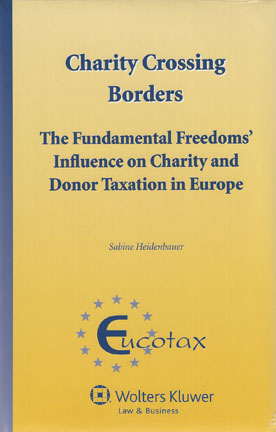
Throughout the European Union, national income tax systems support charitable activities by way of preferential treatment. However, a number of Member States operate relief regimes which appear to trigger the question of compatibility with Union law with respect to the fundamental freedoms.
In this first study to examine charity and donor taxation regimes across a wide range of Member States, the author focuses on compatibility with EU non-discrimination law. She examines twenty national regimes, both comparatively and from the perspective of overarching EU law.
The countries covered are Austria, Belgium, Bulgaria, Cyprus, Estonia, Finland, Germany, Hungary, Ireland, Italy, Latvia, Lithuania, Malta, The Netherlands, Poland, Portugal, Slovakia, Spain, Sweden, and the United Kingdom.
Even in a fully harmonized scheme of charity and donor taxation, the Member States must observe primary Union law and grant non-discriminatory treatment where a fact pattern falls within the ambit of the fundamental freedoms. In the course of defining this framework, the study addresses such issues as the following:-